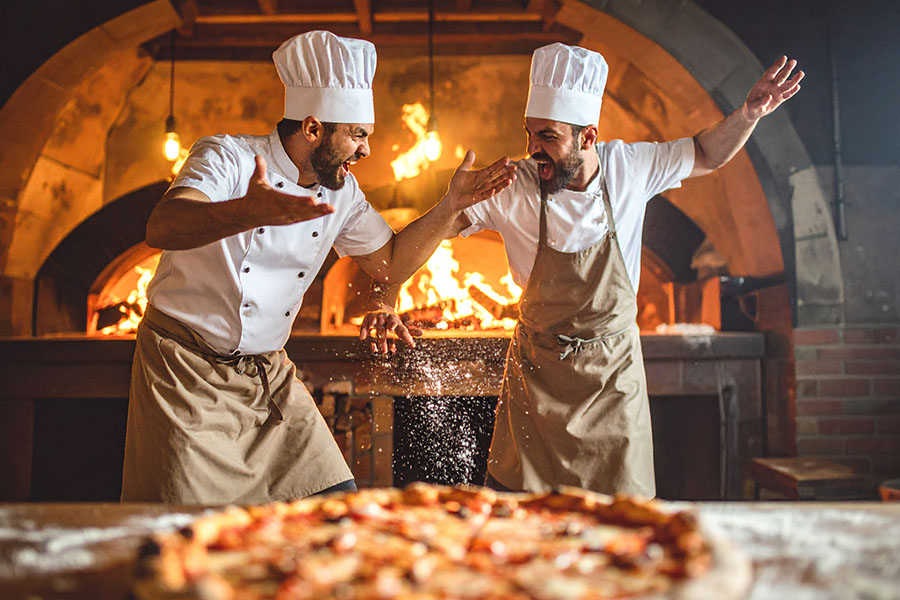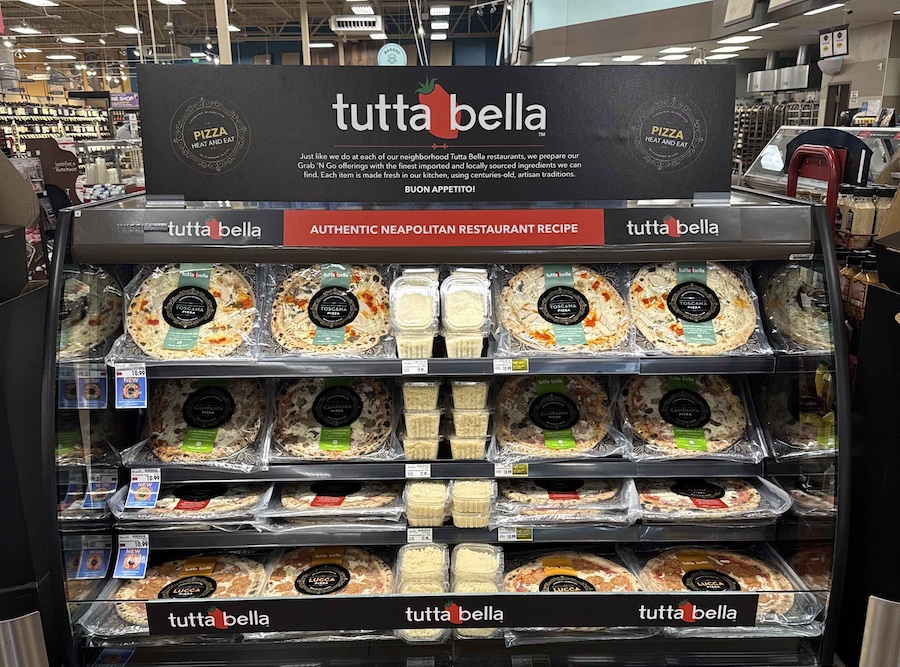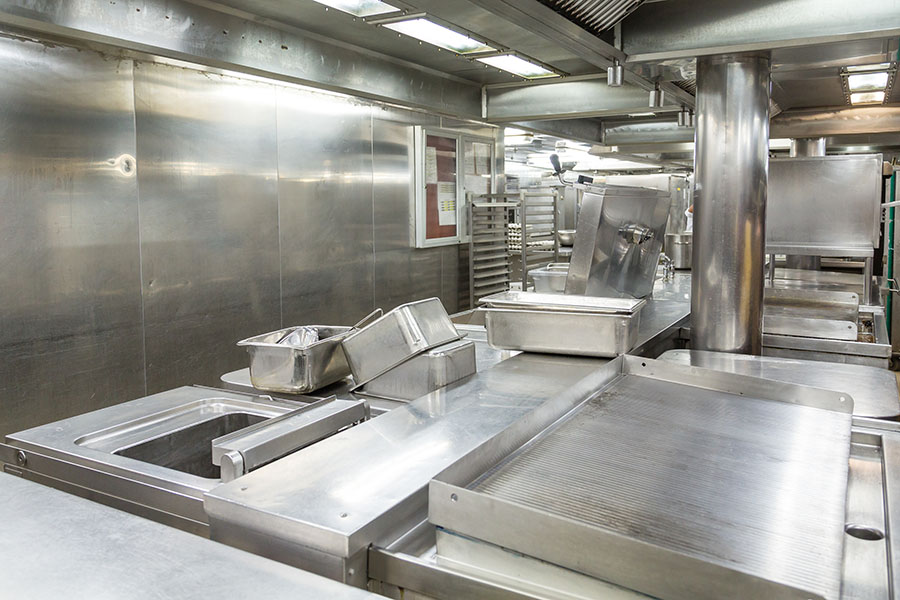 Whether it’s a hurricane that pounds a coastal region, a fire that destroys an entire city block or a snowstorm that shuts down the town for a week, no one likes to think of potential disasters that could close restaurant doors for several days –– or even weeks. Yet failing to prepare for the unexpected can have devastating results. “Often the true disaster is what happens to the business after the event, simply because of the lack of planning,” says Alan Guinn, managing director and CEO of The Guinn Consultancy Group, Inc., in Bristol, Tennessee. Fortunately, laying the groundwork now to make sure the pies keep coming after the storm doesn’t have to be complicated or costly. Here, experts weigh in with guidelines to create a well-prepared pizzeria –– before disaster strikes.
Whether it’s a hurricane that pounds a coastal region, a fire that destroys an entire city block or a snowstorm that shuts down the town for a week, no one likes to think of potential disasters that could close restaurant doors for several days –– or even weeks. Yet failing to prepare for the unexpected can have devastating results. “Often the true disaster is what happens to the business after the event, simply because of the lack of planning,” says Alan Guinn, managing director and CEO of The Guinn Consultancy Group, Inc., in Bristol, Tennessee. Fortunately, laying the groundwork now to make sure the pies keep coming after the storm doesn’t have to be complicated or costly. Here, experts weigh in with guidelines to create a well-prepared pizzeria –– before disaster strikes.
First, know your risks. Record-breaking natural disasters, such as catastrophic tornadoes and shattering earthquakes, tend to be rare. Many smaller-scale events, however, can still do considerable damage. Power outages can wreak havoc on freezers and coolers, fires can destroy valuable financial records, and a few inches of water can trigger the loss of tens of thousands of dollars’ worth of equipment.
To financially prepare for disasters big and small, restaurant owners should have enough insurance coverage on the building, equipment, and inventory to replace it, says Bob O’Brien, vice president of Noyes Hall & Allen Insurance, an independent insurance agency in South Portland, Maine.
Taking out an insurance policy that includes business interruption coverage can prevent cash flow from plummeting after a disaster. “This coverage replaces lost earnings during the time you’re shut down,” explains O’Brien. The policy generally covers net income, so if a pizza shop usually brings in $1,000 of net income a night, and is closed for five nights, the policy would pay out $5,000.
Business interruption coverage also covers extra expenses, such as those specifically resulting from a disaster. For instance, “if you’re a tenant in a building and aren’t sure if the owner will rebuild, you might need to pick a different location,” says O’Brien. The policy would cover the cost of moving equipment to the next site. It would also pay for advertising to let customers know about the new location.
Pizzerias located near a body of water that could flood, such as a stream, lake or ocean, may need flood insurance, which is available only through the government. Restaurants situated in areas with strong winds, such as coastal areas of Florida, might need to have a separate wind policy.
Understanding the risks a pizzeria faces can make it easier to prepare equipment and inventory. Steve’s Wood Fired Pizza in Boca Raton, Florida, has an area behind the restaurant where two generators, two chest freezers, camping lanterns, batteries, flashlights and wood for covering windows are stored.
With a location in coastal Florida, Steve Greenberg, the restaurant’s founder, is not only aware of the need to prepare for hurricanes; he’s experienced the worst of them. When Hurricane Wilma, the strongest hurricane ever recorded in the Atlantic basin, struck in 2005, Steve’s Wood Fired Pizza closed during the storm. As soon as it was over, however, the place was up and running.
Prior to the hurricane, Greenberg made sure there was enough gas for the generators. He stocked inventory by making a large amount of sauce and purchasing extra cheese and produce. “Anything that was not a vegetable was frozen,” he recalls.
After the hurricane, the restaurant was out of power for two weeks. While many nearby businesses shut down, Steve’s Wood Fired Pizza, with its generators and food supplies, stayed open. Until the power returned, the place served carry out only. “Business was great,” recalls Greenberg. “We sold so many pizzas we ran out of boxes and put pizzas in bags, but nobody complained.”
The storm preparation left a lasting impression on the community. “People still remember we were open after the hurricane,” says Greenberg.
Staff training is also critical. Following certain disasters, such as tornadoes and floods, some of the staff may not be able to make it in to work. To keep operations going, cross training is key, says Barbara Goldberg, founder of Back on Track Solutions, a consulting firm based in St. Augustine, Florida.
In addition to training, keeping a book or file with written procedures, such as how to make the dough, prepare pizzas, and carry out the front end of the business can help others jump in as needed. “If you have it in writing, anyone can come in behind you and follow those guidelines,” says Goldberg.
Along with procedures, Goldberg recommends a sheet of information listing key contacts. The list should include contact information for employees, vendors, the insurance company and local media, suggests Goldberg. It should also have phone numbers for the local gas, water, and electric companies. After a disaster, keep everyone updated on your situation as quickly as possible, including the community, says Goldberg. “If you close temporarily and let your customers and media know what’s going on, they’ll be more likely to support you. And they’ll come back when you’re open again.”
Safety First When Disaster Strikes
When a city water main broke and flooded the basement of Fong’s Pizza in Des Moines, Iowa, in November 2012, the place had to be evacuated — fast. “The most important thing was getting everyone out of the restaurant quickly,” notes Gwen Page, owner and general manager at Fong’s, a restaurant and bar featuring Asian-inspired pizzas. As the water poured in, the restaurant’s staff helped all of the customers get outside safely. “The key was to stay calm,” says Page.
The water company covered the flood damage at the restaurant. Everything in the basement, including a walk-in cooler, three freezers, a dough mixer, security system, computer, and POS system had to be replaced. On the restaurant’s main floor, where the bar and tables are located, five booths were replaced. In January 2013, when Fong’s reopened, local TV stations covered the event. The media coverage was great for business, says Page. Today, sales are up and takeout orders are booming.
Rachel Hartman is a freelance writer living in El Paso, Texas.






